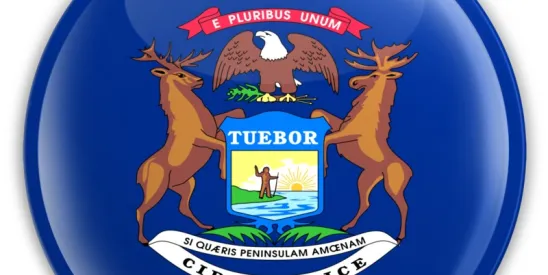On April 3, 2020, Michigan Governor Gretchen Whitmer issued Executive Order 2020-36, which, effectively immediately, prohibits Michigan employers from discharging, disciplining or otherwise retaliating against an employee who misses work for certain specified periods of time because he or she: (i) has tested positive for COVID-19; and/or (ii) is in “close contact” with either an individual who tests positive for COVID-19 or with an individual who displays one or more of the principal symptoms of COVID-19 (“Covered Employees”). “Close contact” is defined to mean “being within approximately six feet of an individual for a prolonged period of time,” and “principal symptoms” of COVID-19 include fever, atypical cough or atypical shortness of breath.
Employers must treat Covered Employees as if they were taking medical leave under Michigan’s Paid Medical Leave Act, 2018 PA 338, as amended, MCL 408.961, et seq. Employers may debit any hours that any Covered Employee stays home from work from the employee’s accrued leave. However, if the employee has no accrued paid leave, the leave may be unpaid.
Covered Employees
A Michigan employee who tests positive for COVID-19 or who displays one or more of the principal symptoms of COVID-19 may take a leave of absence from work until: (i) three days have passed since his or her symptoms have resolved; and (ii) seven days have passed since his or her symptoms first appeared or since he or she were swabbed for the test that yielded the positive result. These protections cease to apply to anyone who, after showing symptoms, receives a negative COVID-19 test.
In addition, a Michigan employee who has had “close contact” with an individual who tests positive for COVID-19 or with an individual who displays one or more of the principal symptoms of COVID-19 may take a leave of absence from work until either 14 days have passed since the last close contact with the sick or symptomatic individual or the sick or symptomatic individual receives a negative COVID-19 test. However, these protections do not apply to: (i) healthcare professionals; (ii) workers at a healthcare facility; (iii) first responders (e.g., police officers, fire fighters and paramedics); (iv) child protective service employees; (v) workers at child care institutions; and (vi) workers at correctional facilities.
Discipline/No Private Right of Action
The Executive Order does not prohibit an employer from discharging or disciplining a Covered Employee: (i) who is allowed to return to work but declines to do so; (ii) with the employee’s consent; or (iii) for any reason that is not unlawful. Moreover, the Executive Order does not create a private right of action for a Covered Employee. Rather, the Michigan Department of Labor and Economic Opportunity is responsible for enforcing the Executive Order.
Implications
Employers with Michigan operations would be well-advised to familiarize themselves with the Executive Order and other COVID-19 related leave requirements to confirm that their leave policies are in compliance.




 />i
/>i

